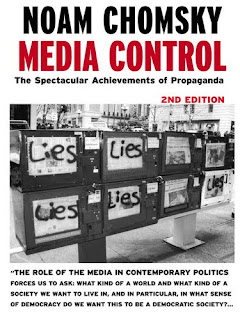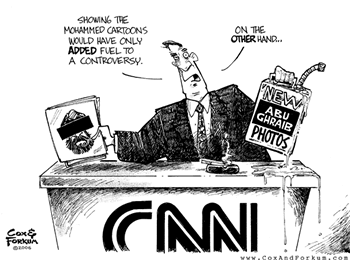Last week, during the online meeting there was a talk about Youtube beeing an research tool. I have found one interesting article that talks about this topic and about how Youtube will become a new Google. How? Check it out.
At First, Funny Videos. Now, a Reference Tool.
By MIGUEL HELFT
Published: January 17, 2009
FACED with writing a school report on an Australian animal, Tyler Kennedy began where many students begin these days: by searching the Internet. But Tyler didn’t use Google or Yahoo. He searched for information about the platypus on YouTube.
“I found some videos that gave me pretty good information about how it mates, how it survives, what it eats,” Tyler said. Similarly, when Tyler gets stuck on one of his favorite games on the Wii, he searches YouTube for tips on how to move forward. And when he wants to explore the ins and outs of collecting Bakugan Battle Brawlers cards, which are linked to a Japanese anime television series, he goes to YouTube again.
While he favors YouTube for searches, he said he also turns to Google from time to time.
“When they don’t have really good results on YouTube, then I use Google,” said Tyler, who is 9 and lives in Alameda. Calif.
Tyler’s way of experiencing the Web — primarily through video — may not be mainstream, at least not yet. But his use of YouTube as his favorite search engine underscores a shift that is much broader than the quirky habits of children.
The explosion of all types of video content on YouTube and other sites is quickly transforming online video from a medium strictly for entertainment and news into one that is also a reference tool. As a result, video search, on YouTube and across other sites, is rapidly morphing into a new entry point into the Web, one that could rival mainstream search for many types of queries.
“There are an increasing number of people who are doing video searches to supplement and improve what they do in their offline lives,” said Suranga Chandratillake, the chief executive of Blinkx, a video search engine.
With inexpensive cameras flooding the market and a proliferation of Web sites hosting seemingly unlimited numbers of clips, it’s never been easier to create and upload video. You can now find an online video on virtually any topic. Web videos teach how to grout a tub, offer reviews of the latest touch-screen phones and give you a feel for walking across the Ponte Vecchio in Florence, Italy.
The consumption of video has followed a similar trajectory. In November, 146 million Americans watched videos online, streaming a total of 12.6 billion video clips, or nearly double the number they streamed just 20 months ago, according to comScore.
YouTube itself has grown even faster. Its share of videos streamed soared to 40 percent in November from 17 percent in March 2007.
And now YouTube, conceived as a video hosting and sharing site, has become a bona fide search tool. Searches on it in the United States recently edged out those on Yahoo, which had long been the No. 2 search engine, behind Google. (Google, incidentally, owns YouTube.) In November, Americans conducted nearly 2.8 billion searches on YouTube, about 200 million more than on Yahoo, according to comScore.
This startling statistic prompted Alex Iskold, the founder and chief executive of Adaptiveblue.com, a Web start-up, to ask in a blog post, “Is YouTube the next Google?” In other words, is YouTube effective as a mainstream search engine, and might it supplant or rival Google some day?
To test the idea, Mr. Iskold, whose inquiry was inspired partly by a conversation with Ian Kennedy, Tyler’s father, about his son’s search habits, performed a series of queries on YouTube and rated the results. Not surprisingly, some searches (vacuuming carpets, Donkey from Shrek) produced better results than others (George Washington, astrophysics).
As more video is added to the Web, the proportion of video searches that deliver satisfactory answers will grow, too. The question is, how far will video go as an alternative to text?
Mr. Iskold said that two factors would naturally limit video’s potential to supplant text on the Web. First, much content doesn’t lend itself well to video. And the Internet derives much of its utility from the web of links connecting its sites. But Mr. Iskold said that a shift toward video would continue, and that young Internet users, like Tyler, would only accelerate it. (In the comments section of Ms. Iskold’s blog post, two other parents said that their sons also used YouTube as their primary search tool.)
At YouTube, Hunter Walk, a director of product management, said the move toward video might not necessarily lead to a decline in the consumption of text or other media. Video, text and other formats, he said, will complement one another in interesting ways.
Mr. Walk said a good example is provided by an ad for Hillary Rodham Clinton during the Democratic presidential primaries — the one in which a voice asks “Who do you want answering the phone?” at the White House at 3 a.m. during a crisis. A search for “Hillary Clinton 3 a.m.” on Google would bring up news stories about the ad and the controversy surrounding it. On YouTube, the same search brought up the original commercial, as well a response by the Barack Obama campaign, pundits’ commentaries and an assortment of spoofs, giving users a much different understanding of how the story unfolded, Mr. Walk said.
“Video is part of the discovery process,” he said. “Depending on the user and the type of content, users may want to start with video or text.”
YouTube won’t break out searches by category, but Mr. Chandratillake said that on Blinkx, some of the fastest-growing searches were in reference categories like money, travel, health and food. More traditional categories, like entertainment, sports and user-generated content, remain more popular but are growing at a slower rate, suggesting a shift.
Tyler’s father, Mr. Kennedy, who is a product manager at Nokia, said he has watched Tyler and his friends going from the Wii to the computer and back to the Wii enough times to understand how much the use of online video is changing. “All of us who are a certain age think of video as a medium associated with television, and not as a reference,” Mr. Kennedy said. “It’s another method of search that we don’t fully appreciate.”
Direct link - http://www.nytimes.com/2009/01/18/business/media/18ping.html?_r=2
ponedeljek, 22. marec 2010
nedelja, 14. marec 2010
Media & Chomsky
Today I was looking through blogs of my fellow mates in New Media & Society course and I read Jernejs post on a new book that just recently came out: Hanging Out, Messing Around, and Geeking Out: Kids Living and Learning with New Media. He still hasn't read it all yet, but he believes that this book will prove to be a valuable source of knowledge for anyone interested in social media, kids living with media and online identity construction.
While reading this post, I started to think, which was the book that striked and reshaped my image on media situation in todays world. Simply written, short, but effective - Media Control by Noah Chomsky.

Why this one? This book can be read within 45 minutes and not only gives real-life examples of modern propaganda uses and successes, but also gives a brief history of its use in the United States - and the modern media was born in the USA, at least in some ways. But in which, you may ask? Well, let me demonstrate you - one of the amature reviewers at amazon.co.uk wrote next lines..."Speaking for myself, I get sick when I hear "CNN, The Most Trusted News," and watch Fox and every other mind-melted American media. I have to admit, I also get nauseated (literally) in just the sight of G.W. Bush or any of his administration attempting to tell the "truth." (the review it's old, but the same thing would be, if we would just change the name og George Bush with Barak Obama's). And what's even more disturbing are the supporter's; Blind and angry fighters with bias moral slants and empty slogans. On the other hand, PBS and Comedy Central are refreshing alternative exceptions to all of these deceptions."
Chomsky examines how propaganda can be just as effective in a free society as in a totalitarian society, citing multiple examples of the American people being misled and the irresponsible complicity of the media establishment dating back to the days of Wilson. There is something that affects the media and understands media as a source of power. If you haven't read the book yet, check it out.
While reading this post, I started to think, which was the book that striked and reshaped my image on media situation in todays world. Simply written, short, but effective - Media Control by Noah Chomsky.

Why this one? This book can be read within 45 minutes and not only gives real-life examples of modern propaganda uses and successes, but also gives a brief history of its use in the United States - and the modern media was born in the USA, at least in some ways. But in which, you may ask? Well, let me demonstrate you - one of the amature reviewers at amazon.co.uk wrote next lines..."Speaking for myself, I get sick when I hear "CNN, The Most Trusted News," and watch Fox and every other mind-melted American media. I have to admit, I also get nauseated (literally) in just the sight of G.W. Bush or any of his administration attempting to tell the "truth." (the review it's old, but the same thing would be, if we would just change the name og George Bush with Barak Obama's). And what's even more disturbing are the supporter's; Blind and angry fighters with bias moral slants and empty slogans. On the other hand, PBS and Comedy Central are refreshing alternative exceptions to all of these deceptions."
Chomsky examines how propaganda can be just as effective in a free society as in a totalitarian society, citing multiple examples of the American people being misled and the irresponsible complicity of the media establishment dating back to the days of Wilson. There is something that affects the media and understands media as a source of power. If you haven't read the book yet, check it out.
ponedeljek, 8. marec 2010
Cartoons, media and crysis
We all know the cartoons that appear in the everydays newspaper...we all look at them, we usually smile, but sometimes things can go in the wrong way...

On February 5, 2006, at the height of the tension following the Danish newspaper Jyllands-Posten's publication of cartoons depicting the Prophet Muhammad, Muslim protesters torched Denmark's embassies in Beirut and Damascus. While many in the West looked on with bewilderment, protests spread across the Muslim world, and stores in Muslim areas removed Danish products from their shelves. Even as the cartoon crisis captured headlines around the world, most people outside Denmark remain unfamiliar with the forces propelling it. Like the Salman Rushdie affair before it and the furor over Pope Benedict XVI's remarks at Regensburg University after it, the cartoon controversy had less to do with genuine outrage over the depiction of Islam's prophet and more to do with the ambitions, first, of a small group of radical imams and, later, of jousting Middle Eastern powers. Now that the dust has settled, what is the legacy of the crisis, not only for Denmark but also for the Western world? But this post souldn't be about that, it should be about the power that one picture, related to some media has...
Most of the people already forgot what happened after the 'crysis' with media using picture of Mohamed as a way to show current political situation, but from time to time, we can still find someone who makes fun about the events that followed - but in a ironic whay.

That reminds me - what can we show with a simple cartoon? Let's us look.




On February 5, 2006, at the height of the tension following the Danish newspaper Jyllands-Posten's publication of cartoons depicting the Prophet Muhammad, Muslim protesters torched Denmark's embassies in Beirut and Damascus. While many in the West looked on with bewilderment, protests spread across the Muslim world, and stores in Muslim areas removed Danish products from their shelves. Even as the cartoon crisis captured headlines around the world, most people outside Denmark remain unfamiliar with the forces propelling it. Like the Salman Rushdie affair before it and the furor over Pope Benedict XVI's remarks at Regensburg University after it, the cartoon controversy had less to do with genuine outrage over the depiction of Islam's prophet and more to do with the ambitions, first, of a small group of radical imams and, later, of jousting Middle Eastern powers. Now that the dust has settled, what is the legacy of the crisis, not only for Denmark but also for the Western world? But this post souldn't be about that, it should be about the power that one picture, related to some media has...
Most of the people already forgot what happened after the 'crysis' with media using picture of Mohamed as a way to show current political situation, but from time to time, we can still find someone who makes fun about the events that followed - but in a ironic whay.

That reminds me - what can we show with a simple cartoon? Let's us look.



četrtek, 4. marec 2010
Just a quick outline of a regular student, with an irregular thoughts
Just in a sentence or two...
For the past years, I worked at main (basically, the only one) student radio in Ljubljana, called Radio Študent. It represents the old-fashioned technology of broadcasting, but in combination with internet broadcasting, it results in a fine specimen of new media.
http://www.radiostudent.si/article.php?sid=14073
I have also worked as a columnist at internet entertainment portal called Vest. We combined written texts with video images and got new types of efficient broadcasting elements.
http://www.vest.si/author/Marko+Orel/page/2/
Naročite se na:
Objave (Atom)

